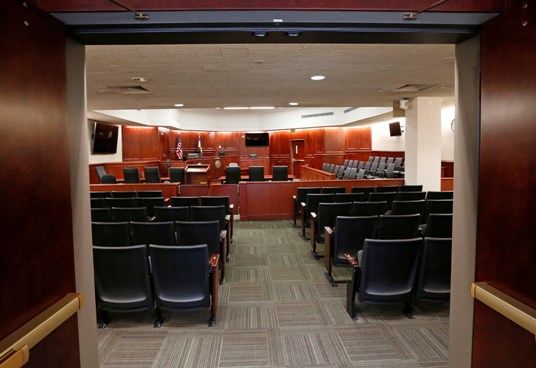MSU experimental study says pandemic increased guilty pleas

SPRINGFIELD – Did the pandemic increase guilty pleas in American courtrooms? An experimental study from Missouri State University says yes.
People in the U.S. have a constitutional right to a jury trial. Yet, more than 95% of criminal convictions result from guilty pleas rather than jury verdicts.
The bulk of these guilty pleas come from plea bargaining. This occurs when prosecutors offer reduced sentences to defendants. In return, they waive their right to a trial.
Even those who are innocent can plead guilty. Factors that encourage guilty pleas, such as the promise of immediate release from jail, can be just as alluring to innocent defendants as guilty ones.
COVID-19 has impacted the criminal justice system in two major ways:
- There were outbreaks in prisons and jails because of close physical contact.
- Defendants had to wait even longer for their day in court because courts closed or limited their operations.
Did the added risk of COVID exposure in jail make defendants, whether guilty or not, more likely to plead guilty to avoid pretrial detention?
A team of researchers that included Missouri State University’s Dr. David Zimmerman worked to find out through an experimental study.
Using a computer simulation, the researchers surveyed more than 700 adults through an online platform called Prolific Academic. Dr. Miko Wilford at the University of Massachusetts Lowell developed the program with funding from the National Science Foundation.
“Participants created an avatar and were told their character has been accused of theft. They’re stuck in jail because of a previous conviction,” explained Zimmerman, associate professor of psychology. “They were also presented with a plea offer – plead guilty and get probation.”
The researchers randomly assigned participants to be either innocent or guilty of stealing a pair of sunglasses. In addition, half of them got information that COVID-19 was spreading in the jail and court dates were pushed back due to the pandemic – the other half did not.
“We found that those variables impacted the guilty plea outcome,” Zimmerman said. “Guilty people were more likely to plead guilty, which is typical. But the COVID information – that sort of heavy-handed manipulation regarding the pandemic – also influenced innocent people to plead guilty.”
Data further revealed that innocent participants ranked the COVID threat as a more important factor causing them to plead guilty than did guilty participants.
“We hypothesized that tertiary factors to the commission of the crime would impact innocent people a little more than guilty people,” Zimmerman said.
He co-wrote an article summarizing this study, which was recently published in the Journal of Experimental Psychology: Applied. The article highlights existing issues in the system that COVID has worsened.
“In particular, pretrial detention can coerce people – guilty or innocent – into pleading guilty,” Zimmerman said.
He notes that to their credit, prosecutors have made efforts to reduce pretrial detention and otherwise be more lenient to nonviolent offenders during the pandemic.
“Unfortunately, that doesn’t change the fundamental imbalance that is present in plea negotiations,” Zimmerman said. “It’s largely up to the prosecutor whether he or she uses the additional leverage against defendants created by the pandemic.”



